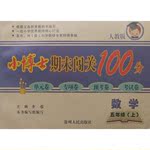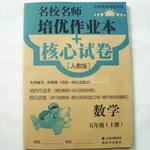
Who taught you to walk when you were little? Who worries the most when you are 1 ? Who makes you dinner? It’s 2 mother. No matter what happens, she’ll 3 the love for you.
Do you know how 4 Day came into being(产生)? It began in the US in 1907 when an American girl 5 Anna Jarivs started a campaign to honor(给…荣誉)mothers. She believed that mothers could 6 people to get over the pain of the war and to strengthen(加强)the relationship inside families.
On Mother’s Day, children usually help their mothers do 7 . In western countries, bringing mothers 8 in bed is common. A mother will get up late 9 her children make her favorite breakfast. Children also make their own Mother’s Day card 10 a thank-you note. Or they buy gifts and flowers for their mothers.
【小题1】A. lazy B. ill C. sleepy
【小题2】A. his B. your C. her
【小题3】A. continue B. stop C. start
【小题4】A. Children’s B. Women’s C. Mother’s
【小题5】A. named B. names C. name
【小题6】A. help B. ask C. order
【小题7】A. homework B. housework C. sports
【小题8】A. flowers B. clothes C. breakfast
【小题9】A. how B. while C. as
【小题10】A. with B. for C. from
【小题1】B
【小题2】B
【小题3】A
【小题4】C
【小题5】A
【小题6】A
【小题7】B
【小题8】C
【小题9】B
【小题10】A
解析试题分析:这篇短文主要介绍了母亲节的产生及母亲节期间子女们的感恩方式。
【小题1】词义辨析。A. 懒惰的;B. 生病的;C. 困乏的。结合语境可知此处指的是你生病时,谁最担心。故选B。
【小题2】联系前文描述,可知此处指的是你的母亲,故选B,你的。
【小题3】动词辨析。A.继续;B. 停止,阻止;C. 开始,发动。结合语境可知此处只是,不管发生什么,她都会继续爱你。故选A。
【小题4】联系下文描述,可知此处指的是母亲节,故选C,母亲的。
【小题5】联系下文Anna Jarivs ,可知此处指的是一个名叫安娜的女孩,故选A,名叫……的。
【小题6】动词辨析。A. 帮助;B.问,要求;C. 命令。结合语境可知此处指的是,她相信母亲能帮助人克服战争的伤痛,故选A。
【小题7】名词辨析。A. 作业;B. 家务;C. 运动。结合语境可知此处指的是帮助母亲做家务。故选B。
【小题8】词义辨析。A.鲜花;B.衣服;C. 早饭;联系下文描述可知此处指的是通常把早饭送到床前,故选C。
【小题9】连词辨析。A.如何,怎样;B. 然而,当……时;C. 因为,随着,当……时。联系上下文,可知前后是转折关系。故选B,母亲会起得很晚,而他的孩子们会给她做最喜欢的早饭。
【小题10】介词辨析。A. 带有,伴随;B. 为了;C.从,来自。结合语境可知此处指的是带有感谢信的卡片,故选A。
考点:有关母亲节的说明文
点评:这篇短文内容比较简单,理解不难。各小题与上下文联系比较紧密,答题中一定要注意联系上下文。答完后多读几遍,看看是否符合逻辑,适当修改。个别小题可以当作单独的词义辨析题来做,先区分词义,结合语境选出最能使语句通顺的答案。


 小博士期末闯关100分系列答案
小博士期末闯关100分系列答案 名校名师培优作业本加核心试卷系列答案
名校名师培优作业本加核心试卷系列答案科目:初中英语 来源:2013届江苏省南京市高淳县九年级上学期期中质量调研测试英语试卷(带解析) 题型:单选题
—Who taught her French?
— ! She learned it by herself.
| A.Nobody | B.Anybody | C.Somebody | D.Everybody |
查看答案和解析>>
科目:初中英语 来源:2011年江苏省扬州市中考英语试卷(解析版) 题型:完型填空
Who taught you to walk when you were little? Who worries the most when you are 56 ? Who makes you dinner? It’s your 57 . No matter what happens, she’ll 58 the love for you.
Do you know how did 59 Day come into being(产生) ? It began in the US in 1907 whenan 60 girl named Anna Jarvis started a campaign to honor(给......以荣誉) mothers. Shebelieved that mothers could 61 people to get over the 62 of the War and to strengthen (加长) the relationship inside families.
On Mother’s day, children usually help their mothers do 63 . In western countries, bringing mothers 64 in bed is common. A mother will get up late while her children make her favorite breakfast. Children also make their own Mother’s Day card 65 a thank-you note. Or they buy gifts and flowers for their mothers.
【小题1】 A. lazy B. ill C. sleepy
【小题2】A. father B. mother C. sister
【小题3】 A. continue B. stop C. start
【小题4】A. Children’s B. Women’s C. Mother’s
【小题5】 A. Asian B. Australian C. American
【小题6】A. help B. ask C. order
【小题7】A. worry B. pain C. memory
【小题8】 A. homework B. housework C. hair
【小题9】 A. flowers B. clothes C. breakfast
【小题10】 A. with B. for C. from
查看答案和解析>>
科目:初中英语 来源:2011-2012学年江苏省泰州市永安初级中学八年级3月练习英语试卷(带解析) 题型:阅读理解
Tom was ten years old, and he was a very lazy boy, He didn't like doing any work. He had to go to school of course, but he didn't study hard there and tried to do as little work as possible. His father and mother were both doctors and they hoped that their son would become one, too, when he grew up. But one day Tom said to his mother, "When I finish school, I want to be a dustman." "A dustman?" his mother asked, she was very surprised. "That's not a very pleasant job, why do you want to become a dustman?" "Because then I would only have to work one day a week." Tom answered at once. "Only one day a week?" his mother said, "What do you mean? and how do you know?" "Well", Tom replied, "I know that the dustmen who come to our house on work on Thursday, because I only see them on that day."
【小题1】What kind of boy was Tom?
A. Tom was a clever boy.
B. Tom was a boy who didn't like to work.
C. Tom was a boy who worked very hard.
【小题2】What did Tom say he wanted to be?
A. Tom said that he wanted to be a person who collected rubbish and emptied the dustbins.
B. Tom said that he wanted to be a person who taught the children at school.
C. Tom said that he wanted to be a person who worked in a hospital.
【小题3】Why did Tom think that dustmen only worked one day a week?
A. Because Tom heard of this.
B. Because one of the dustmen had told him before.
C. Because Tom had seen the dustmen only on Thursday at his house.
查看答案和解析>>
科目:初中英语 来源:2015届广东揭阳揭西张武帮中学八年级上学期期中考试英语卷(解析版) 题型:单项填空
—He plays basketball so well! Who taught _______?
—He learnt it by _______.
A. him; him????????????? B. himself; himself????????????? C. him; himself?? D. himself; him
查看答案和解析>>
科目:初中英语 来源:2010年山东省东营市毕业升学考试英语卷 题型:阅读理解
One day, I went to see my last patient(病人), an old woman. In the doorway, I saw she was struggling (挣扎) to put socks on her swollen (浮肿)feet in the bed. I stepped in, spoke quickly to the nurse, read her chart noting. I was almost in the clear that she was not in serious condition.
I asked, “Could I help put on your socks? How are you feeling? Your sugars and blood pressure were high but they're better today. The nurse mentioned you're anxious to see your son. He's visiting you today. It's nice to have a family visit. I think you really look forward to seeing him."
"Sit down, doctor. This is my story, not yours." She said with a serious voice.
I was surprised as I helped her with the socks. She told me that her only son lived around the corner from her, but she had not seen him in five years. She believed that was the main cause of her health problems. After hearing her story and putting on her socks, I asked if there was anything else I could do for her. She shook her head no and smiled. All she wanted me to do was to listen.
Each story is different. Some are detailed; others are simple. Some have a beginning, middle and end; others don’t have clear ends. Some are true; others not. Yet all those things do not really matter. What matters to the storyteller is that the story is heard — without interruption(打断) or judgment(评价).
It was that woman who taught me the importance of stopping, sitting down and truly listening. And, not long after, in an unexpected accident, I became a patient. 20 years later, I sit all the time — in a wheelchair.
For as long as I could, I continued to see patients from my chair. I believe in the power of listening.
1. How was the old woman?
A. Her feet were swollen. B. Her sugars were high.
C. She was not badly ill. D. Her blood pressure was better.
2.How did the doctor know that the old woman’s son was visiting her?
A. The nurse told him. B. The old woman told him.
C. The woman’s son told him. D. The doctor got it from her chart noting.
3.What did the old woman think caused her health problems?
A. Her son’s not seeing her. B. No one listening to her story.
C. The medical care of the hospital. D. The distance between her and her son.
4.When the patient told the doctor her stories, what she needed might be ______.
A. keeping smiling B. interruption or judgment
C. listening without interruption D. communicating with each other
5.Which statement is NOT right according to the passage?
A. Her son lived close to her house.
B. The old woman didn’t need the doctor’s treatments.
C. Listening is powerful medicine.
D. The doctor has to “walk” with the help of a wheel chair.
查看答案和解析>>
湖北省互联网违法和不良信息举报平台 | 网上有害信息举报专区 | 电信诈骗举报专区 | 涉历史虚无主义有害信息举报专区 | 涉企侵权举报专区
违法和不良信息举报电话:027-86699610 举报邮箱:58377363@163.com